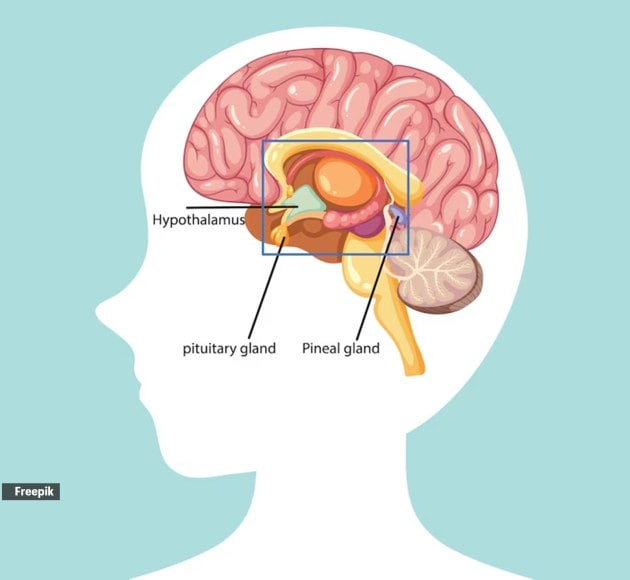Why your brain confuses thirst with hunger (and how to stop overeating)
While both hunger and thirst are regulated by the brain, the signals can sometimes overlap or be misinterpreted.
August 1, 2025 11:54 IST 1 / 7
1 / 7Have you ever reached for a snack only to realise you might not have been hungry at all -- but just thirsty? Many people unknowingly eat when their body is actually asking for water. This confusion between thirst and hunger is more common than you might think, and it could be affecting everything from your energy levels to your weight. (Source: Freepik)
 2 / 7
2 / 7While both hunger and thirst are regulated by the brain, the signals can sometimes overlap or be misinterpreted. This can lead to unnecessary eating and a cycle of dehydration. But why does the body blur the lines between the need for food and the need for water? (Source: Freepik)
 3 / 7
3 / 7So, what are the biological or neurological reasons that cause the body to confuse thirst with hunger?
Dr Jagadish Hiremath, public health intellectual, tells indianexpress.com, “The sensation of hunger and thirst both originate from the hypothalamus, a part of the brain that regulates basic bodily functions including appetite and fluid balance. Because the signals for both needs are processed in the same region, the brain can sometimes misinterpret mild dehydration as a need for food.” (Source: Freepik) 4 / 7
4 / 7When the body lacks water, the resulting drop in energy or slight dizziness may feel similar to the sensations of hunger. “This overlap in internal signals is more likely to occur when hydration levels are borderline low, causing people to reach for a snack instead of water,” states Dr Hiremath. (Source: Freepik)
 5 / 7
5 / 7Signs or symptoms that can help people distinguish true hunger from hidden dehydration
One useful way to tell the difference is to check the timing and context of the craving. Dr Hiremath says that true hunger “often builds gradually and is accompanied by stomach growling or a desire for specific foods. Dehydration may present as a sudden urge to eat despite having eaten recently.”
Additional signs of hidden dehydration include dry mouth, fatigue, light-headedness, dark urine, or a mild headache. The doctor informs, “If someone feels the need to eat without a clear physical cue like an empty stomach, drinking a glass of water and waiting for a few minutes can help clarify whether the body was actually asking for hydration.” (Source: Freepik) 6 / 7
6 / 7How can staying properly hydrated throughout the day help regulate appetite and prevent overeating?
Dr Hiremath stresses, “Staying well hydrated supports the body’s natural ability to regulate appetite. When hydration levels are maintained, the brain is better able to differentiate between hunger and thirst. This reduces the likelihood of mindless snacking or unnecessary calorie intake in response to thirst misinterpreted as hunger.” (Source: Freepik) 7 / 7
7 / 7Drinking water before meals can also aid in digestion and create a sense of fullness, which can help with portion control. “For many individuals, simply increasing water intake throughout the day has led to noticeable improvements in energy levels, mood, and reduced cravings. Maintaining a consistent hydration routine is a simple yet effective tool for overall health and appetite balance,” concludes the expert. (Source: Freepik)











